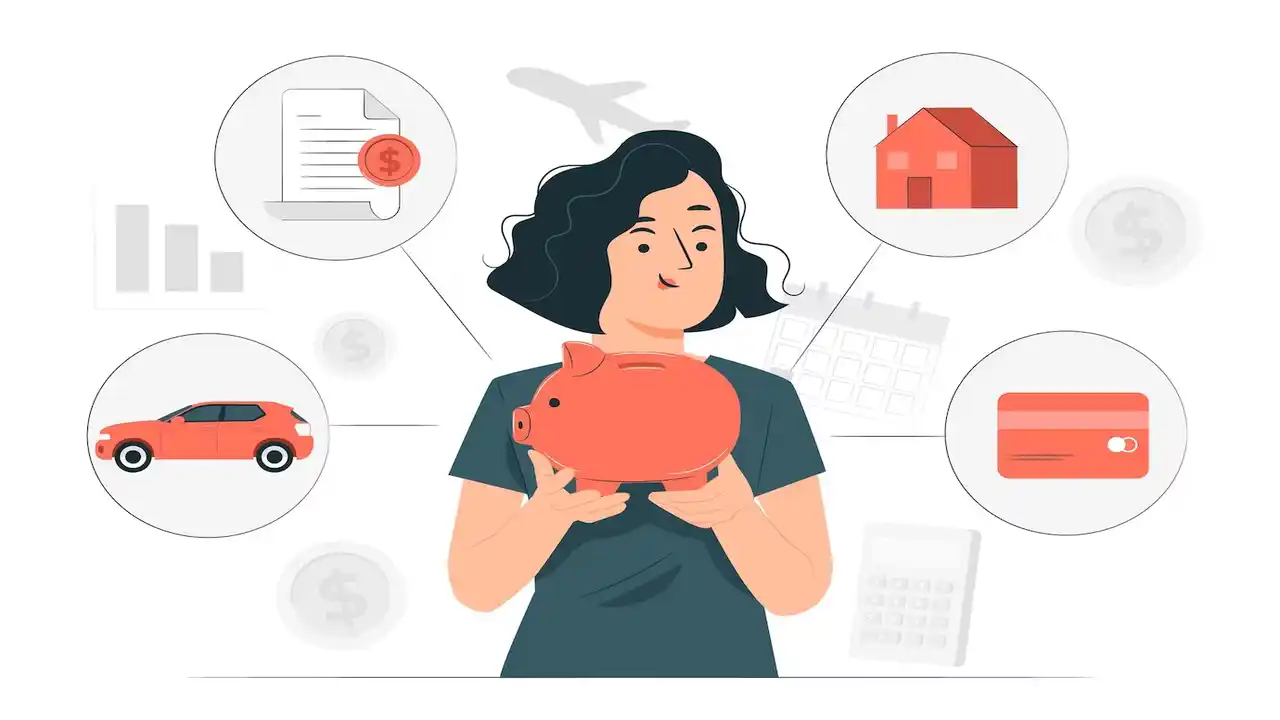Personal finance is the management of one’s current and projected financial circumstances, regardless of their proximity. Furthermore, the phrase can be used to describe a whole industry dedicated to assisting individuals in improving their personal financial management and capitalizing on investment opportunities. Personal finance is a broad topic that includes budgeting, investing, and saving. Investments, budgeting, mortgages, banking, insurance, retirement planning, and taxes are also included. This topic outlines personal finance which will assist you to achieve desired goals in your life.
Effective personal financial management is critical for satisfying current financial responsibilities as well as long-term financial stability for one’s family. By taking immediate financial control of your affairs, you will significantly improve your long-term financial prospects, including retirement planning and investing techniques.Those who understand personal finance fundamentals will see more opportunities to improve their financial status. With this knowledge, you will be better positioned to create a spending plan that satisfies both your immediate and long-term financial needs.
Meaning of Personal Finance
“Personal Finance” refer as “every financial activity and decision that an individual or household undertakes.” Budgeting, insurance, mortgage preparation, savings, and retirement planning are all included in this category.With a thorough comprehension of these concepts, one will be more capable of managing funds and developing long-term planning.
Personal finance refers to the organization and management of one’s own cash, which includes earning and spending money, saving and investing, and safeguarding one’s wealth against loss. To get a thorough grasp of one’s financial management, consider creating a personal budget or financial plan. This handbook will provide an in-depth examination of the fundamental components of personal money management, covering themes that are likely to come up.
Personal Finance Examples
Increasing revenue contrasts with decreasing funds. People leave us for economical reasons. When it comes to money, a wide range of expenses are incurred, including utilities, groceries, clothing, transportation, entertainment, presents, and charitable contributions, among others.
Credit card and tax payments are also included in this category. We pay for goods with either cash or borrowed funds, which is referred to as credit. The majority of people spend a significant percentage of their income each month. If you find yourself in a situation where your spending surpass your income, you will be unable to meet your financial obligations.
How does Personal Finance Work?
Within this context, the phrase “personal finance” refers to the steps an individual takes to organize and manage their own funds, which include actions such as earning and spending money, saving and investing money, and preserving personal belongings. Personal financial management can be defined in a few terms as the implementation of a personal budget or financial plan. Loans are frequently necessary to finance corporate expansion and long-term expenditures. Credit card debt, on the other hand, which is utilized to gain money, nearly never fixes issues rather than resolving them.Please keep the following in mind: Reducing high-interest credit card debt may yield a 15 to 20% return on investment.
Almost no other investment can match this one in terms of risk-free return. If you are having trouble repaying your debt, you should look into debt relief options such as contacting a professional debt relief firm or receiving a debt consolidation loan. Numerous business owners’ financial issues, as well as their personal and professional life, are tightly connected. Entrepreneurship should not be hampered by financial considerations as long as the individual is strongly motivated and invested in the product or service being delivered. They should be treated in the same way that you did when your firm was first starting out. What specific areas do you plan to improve? Create rough spending plans in order to move closer to your goals.
Benefits of Personal Finance
Gaining knowledge and awareness of personal finance can lead to higher savings and retirement contributions, as well as improved investment judgment, all of which contribute to the achievement of one’s financial goals. Remember that burglaries usually happen suddenly, so leaving all of your cash at home is not a good idea. Catastrophic events like as fires or floods may render your hard efforts worthless.
You are in Control And no Cost
The ultimate goal of personal finance is for the individual to accept responsibility for his or her own financial future. You can obtain a better understanding of your spending habits by renaming and categorizing transactions; you are free to draw any conclusions you like from this data. You may decide that you have extra funds to allocate to a specific category or that you want to create a budget for spending in a specific area. It is feasible to imagine both of these possibilities. You have complete power over your financial condition.Personal Finance is an essential component of the True Potential Investor software, which is available for free in its first version. The App Store currently has it available for download.
A Clear Financial Picture And convenience
Having a thorough awareness of how one’s money is spent can make it easier to set realistic goals and allocate resources properly. You may have concluded that the amount of money you constantly spend on morning coffee is excessive. With the help of personal finance, one could potentially examine their spending patterns. You might save £300 over the course of a year by lowering your daily coffee expenditure from £5 to £3. What a tremendous sum of money. Personal finance allows people to easily identify areas where their money is being spent. Individuals who have a bank account can access their funds at any time and from any location, such as an ATM, a bank branch, with a debit card, or through online banking. Various ways can facilitate instantaneous monetary transfers.
Safe and Secure
Yodlee offers a safe platform for accessing transaction history, whereas Personal Finance allows customers to securely connect all of their bank accounts. We never have access to or keep any of your login information. Personal finance protects the confidentiality of your data.
Automatic Recording of your Purchases
Personal Finance’s automated features make it simple to track your spending without having to manually enter each transaction. This function saves you time so you can focus on more essential elements of your life, while Personal Finance maintains your financial security. When you visit the application, your purchases will be systematically grouped in the respective categories. This will allow you to zero in on the areas of your life that are creating the most money waste. It is possible to rename and reclassify your purchases.
FAQ
What is the Purpose of Personal Finance?
Personal finance includes budgeting for oneself and one’s family, accepting responsibility for one’s financial past, present, and future, and determining one’s financial priorities. It is a broad discipline that encompasses all aspects of money management. Personal budgeting and the development of contingency funds are also discussed.
Who Needs Personal Finance?
A solid understanding of personal finance is essential for optimizing one’s earnings and savings. Your level of financial literacy determines your capacity to distinguish between excellent and bad financial advice and make wise judgments.
What are Three Reasons People Save?
The three fundamental benefits of saving money are wealth accumulation, the establishment of a rainy-day fund, and purchasing power. Prospective savings are proportionate to the amount of money left over at the end of each month after deducting all fixed expenses.
Summary
The term “personal finance” refers to an individual’s financial condition and incorporates all areas of financial planning and administration. The term “financial planning” refers to a wide variety of tasks such as budgeting, savings, taxes, and estate distribution. (Remember that this is simply one type of financing among many others.)
Although people may pursue a number of financial goals, they are all contained under the realm of “personal finance,” which is focused with supporting people in achieving their goals. The extent to which you can achieve your goals given the constraints of your current financial situation is mostly determined by your income, expenses, lifestyle demands, and the strategy you design to achieve those goals. To summarize, the topic of personal finance is vital for creating a fair and equitable society.





